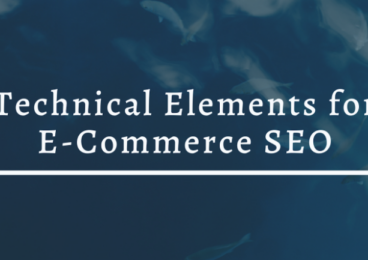 Reading Time: 3 minutes
Reading Time: 3 minutesKeyword research, like any other aspect of SEO, changes over time and in response to user intent and queries. Sometimes the changes are rapid; sometimes they evolve consistently. The X factor that determines how keyword research changes is usually the same, however: Google.
As the world’s most popular search engine, it should come as no surprise that Google is also the foremost purveyor of PPC. As their practices evolve, so do best practices for keyword history and PPC. Let’s take a brief look at the history of keyword research and how it has evolved for today’s best practices.
Keyword Research: The Beginning
When keyword research was in its infancy (as little as 10 years ago), keyword research was fairly simple. A business could analyze keywords using data from Google, develop those, and inject them into content as much as possible, in addition to buying up as many of those keywords as you could. Today, for several reasons, keyword research it a totally different animal. Some of the reasons why include:
- Google no longer gives all access passes to data. Previously, Google used to hand out pretty much any information that we wanted in terms of Analytics, Adwords, and keywords. You could easily understand the search volume, impressions, and site ranking for any given term. However, in October of 2011, Google shut off access to these insights. In Google Ads, you can still find information on total search volume and impressions, but these are general estimates that don’t tell you much about the users themselves.
- The Hummingbird update of 2013 fundamentally changed how we do keyword research. There is some misconception that the update only affected organic search. However, since paid search and organic results share the same SERPs, PPC was fundamentally changed. Under the Hummingbird update, you could no longer force a page to rank for a certain keyword, thanks to a new emphasis on high quality, conversational content.
- It’s harder to analyze the competition. Google used to provide competitive ranking information, so it was easier to ascertain how feasible it would be to rank for a certain keyword. The process is no longer so simple. Throw personalized results, geographic indicators, and subjectivity into the mix, and keyword research becomes so much more difficult that using third-party analytical tools becomes necessary.
Google Adwords Becomes Google Ads
Another evolution that fundamentally changed the way we do keyword research for PPC is the rebranding of Google Adwords to Google Ads in 2018. Google consolidated its brand architecture in the name of simplicity and usability for small businesses, but with it came several changes for keywords and PPC. Some of the biggest include:
- Prizing audiences over keywords. Today, keyword research is not focused on the keywords themselves, but the audiences who search for them.
- The introduction of “Smart Campaigns” makes it easier for small business owners to navigate the world of search.
Keyword Research for PPC in 2019
Perhaps the biggest “trend” in the evolution of keyword research is that the focus is no longer “keywords” at all. The drop of the “word” in Google Ads is particularly telling for the future of PPC keyword research. Today, there are a few things that can determine the best keywords for your PPC campaigns.
- Focus on natural language processing. In the beginning, Google pulled up relevant results by matching a user’s search term with keywords on a page (or a list, in terms of PPC). Today, the emphasis is not necessarily on the keywords themselves but context. With advancements in AI, Google can recognize things like intent, syntax, and even sentiment. People can get answers based on what they actually mean, not how a computer reads what they type.
- Ad Rank. In terms of PPC, one of the main drivers is Google Ads’ Ad Rank, which focuses on the relevance of a selected keywords. At the same time, may ad formats on search don’t even come with the option of bidding on keywords. Campaigns like Shopping Ads, Smart Campaigns, and Dynamic Search Ads are completely devoid of keywords, focusing instead on your business type or website to control when your paid spot comes up.
- Fewer keywords can trigger ads. In today’s PPC landscape, keywords with low search volumes or without commercial intent will not rank or appear in ad spaces.
Navigating PPC in 2019 and Beyond
PPC has evolved over the years, but it has worked to become more friendly for both the customer and the business who it is trying to target. Instead of bidding on keywords or stuffing content with search terms, today’s PPC and search focuses on conversational language and natural language processing. Essentially, Google Ads works to make it easier for small businesses to earn their slice of the PPC pie. Vizion Interactive can help you design and execute winning PPC campaigns – contact us to learn more or schedule a consultation today.
At Vizion Interactive, we have the expertise, experience, and enthusiasm to get results and keep clients happy! Learn more about how our status as a Google Partner, along with our PPC Management, Google Shopping Ads, Social Media Advertising, Amazon Advertising, and other Paid Media services can increase sales and boost your ROI. But don’t just take our word for it, check out what our clients have to say, along with our case studies.




